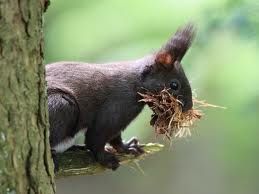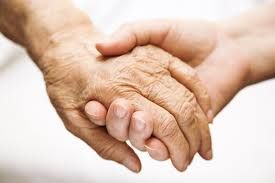Stress
Squirrels and Stress
How a squirrel helped me to slow down and enjoy my coffee
Posted June 23, 2012
As I was fueling myself for the day I saw out my window a squirrel already hard at work. The rapid movement caught my attention, and I noticed the squirrel was deftly bouncing from branch to branch vertically up a pine tree. In its mouth were held what appeared to be a random bunch of dry dead leaves. It was building a nest.

The squirrel was soon out of sight, climbing as high as it could go, or as high as the thinning branches could hold it and the home it was constructing. I kept watching, and a minute or so later the squirrel barreled down the tree, reached the ground, then disappeared under a large bush. It emerged with a mouthful of dry, dead leaves, scanned the area between it and the tree, then dashed forward and up.
On any other day I would have gulped down my coffee and dashed to work. But I slowed down to watch this animal methodically engage in its quest for safety and survival. In that nest would one day be the squirrel’s babies, and it was investing now as many human parents do, facing dangers to make things right for their loved ones. I sipped and actually tasted my coffee.
As I drove to work I thought about that squirrel. Navigating the traffic on my way I pictured myself aware and alert as to the dangers around me, driving to my own under-bush of the hospital where I would earn my leaves of money and prepare to build my home.

I wondered about the stress the squirrel felt, aware only of the drive to survive, not the drive I was taking through the back streets of the suburbs. And yet we had in common the same basic neurochemical response, the same basic stress hormone, cortisol, and the same fight-flight mechanism that both drew my attention to the movement outside my window, as it alerted the squirrel to not just dash out from the bush but ascertain the potential predatory danger between the relative safety and the relative exposure on the way to the tree.
As human animals we experience stress every day. As survival machines we are always on a low grade alert, vigilant to our surroundings, ready to ward off a predator be it a saber tooth tiger or a person we think is trying to cut the line at the coffee shop. We try to build safe homes, physically and financially, measuring the relative safety and relative exposure of our positions. We search for resources wherever we can find them, alert that the resources may be limited and if we do not procure them someone else will, leaving us at a disadvantage. We seek relationships, sometimes at the expense of other relationships, creating in-groups versus out-groups which can lead to small stresses at work or at the supermarket, or large stress like racism, wars, and religious intolerance.
But unlike squirrels who live primarily and primaly in a world of the ancient limbic fight-flight brain, humans have evolved another mechanism, friendships, alliances, affiliations, cooperation. We have the opportunity to reduce stress in ourselves and each other when we cooperate. On my way to work, another driver slowed down enough to let me “cut” in line. I waved a thank you in gratitude. At work, a colleague helped finish a task, and I found myself with the time to help another.

When we cooperate we use our modern brain, planning, anticipating, and then enjoying together more success. We are not squirrels needing to get as far away from potential predators. We can form large, inclusive in-groups to get things done and all feel less stressed out.
This morning I stopped and watched a squirrel, in its isolation struggling to build a nest, on a deep level aware that a hawk could come and eat it, a cat could come and eat it, perhaps another squirrel would come and take the building blocks of its home. I could have seen the rustling of movement, recognized I was not threatened, and just moved on. But instead, I chose to slow down a bit and watch. I gave myself that gift, and rather than be pre-occupied with getting out on time, I let myself relax and enjoy the moment.
There are lots of stresses in our lives. But sometimes we really do have to slow down and smell the coffee.

And find someone to whom you can bring a cup to share.


